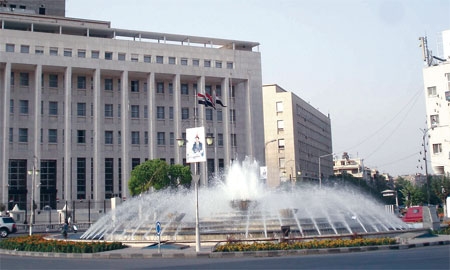Private banks are a relatively recent phenomenon in Syria, where for four decades all banks were controlled by the state. Reform began in 2002 as part of the government’s drive to create a capital market and encourage foreigners to invest in the country, and since then the banking sector has been opened up.
Privately owned banks have been involving themselves in the Syrian market since 2004, and there are now 14 of them in operation. All have participation by subsidiaries of Arab banks, including banks from Lebanon, Jordan, and the Gulf states. Later this year, a private joint Iranian-Syrian bank is expected to open, and Turkish banks are also showing an interest. Isbank, Turkey’s largest bank, was recently granted a license to establish a representative office.
Islamic banking – authorized in 2005 – is also starting to take off. Islamic banks from Kuwait, Saudi Arabia and Qatar are already operating in Syria, and the Bahrain-based Gulf Finance House (GFH) is planning to establish one of the largest Islamic banks in the country under the name Syria Finance House.
It is hoped to attract large international players into the country by allowing majority foreign ownership of banks. Last year Decree No.3 raised the level of permitted foreign ownership from 49% to a controlling 60%. According to Dr. Adib Mayaleh, the governor of the Central Bank, this may be raised still further to 75%.
The same decree also increases the minimum capital requirement for conventional private banks from SYP1.5 billion (around $33 million) to SYP10 billion; for Islamic banks the requirement is SYP15 billion. The banks have been given three years to meet the requirements.
In July, President Bashar al-Assad issued a decree allowing the establishment of investment banks for the first time, albeit with a steep minimum capital requirement of SYP20 billion. For the first time in decades, Syria also has a stock exchange, the Damascus Securities Exchange, opened in 2009.
The moves are aimed at strengthening the financial sector, and giving it the flexibility to finance both private enterprise and the major infrastructure projects that Syria requires.
Inevitably, the arrival of private banks has had the beneficial effect of stimulating competition. State-owned banks still dominate, with 75% of total assets, but the most rapid growth has been seen by the private institutions. New banking products have been introduced, customer numbers and deposits are rising, and the state-controlled banks have in turn been forced to start modernizing.
Dr. Mayaleh attributes the growth in Syria’s banking culture directly to the growing number of banks and their increasing contact with clients. He noted recently that deposits have increased more than twofold in a few years to around SYP850 billion.

0 COMMENTS